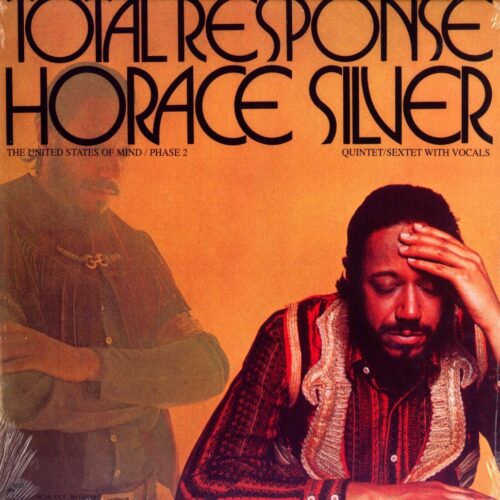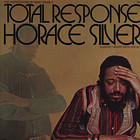»Total Response« from 1971 is one of the most misunderstood jazz records in music history – and perhaps it is this perspective that does justice to the record by Horace Silver and his quintet. The first clue can be found on the record, where it officially reads »Quintet« as usual, but next to it it says »Sextet with Vocal«. Horace Silver had already released 17 records by 1971 and had only begun to make room for singers, i.e. lyrics, with »That Heelin’ Feelin’« (1970) the year before. The two records were later re-released together with »All« (1972) under the title »The United States of Mind« in 2004. They comprise something like the melting pot of the 1960s. As confusing and headstrong as they seem in their ride from funk, to fusion, to soul-jazz to Afrobeat, in them speaks the search for what should follow from the supposed innovations and achievements of the 1960s. And so, somewhere between spiritual unity in the sense of Indian philosophy and meditation (Total Response) and social responsibility, the lyrics are most of all part of Horace Silver’s personal confrontation and suddenly make his jazz more political and urgent. For many critics, the record stands for the decline of Blue Note, but the hard bop veteran Horace Silver actually answers appropriately, both stylistically and in terms of content: By unsettling and disappointing the conservative jazz listener in order to free himself for new rhythms and the use of language, for density of content. Horace Silver takes control with »United States of Mind« and »Total Response« forms the spiritual centrepiece. It’s worth listening to this record again and ignoring its great legacy and the Blue Note name in the process for 40 bewildering, enlightening minutes.
Joe Henderson
Power To The People
Craft


